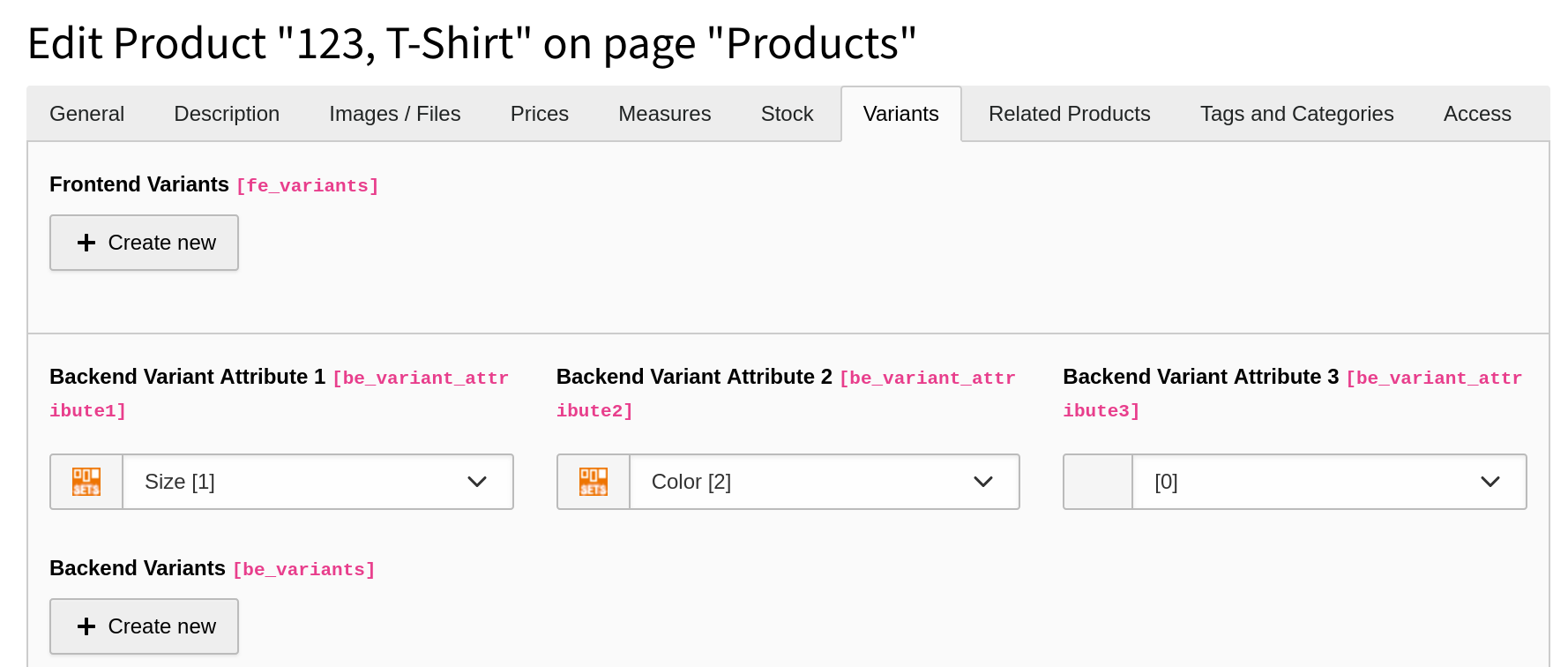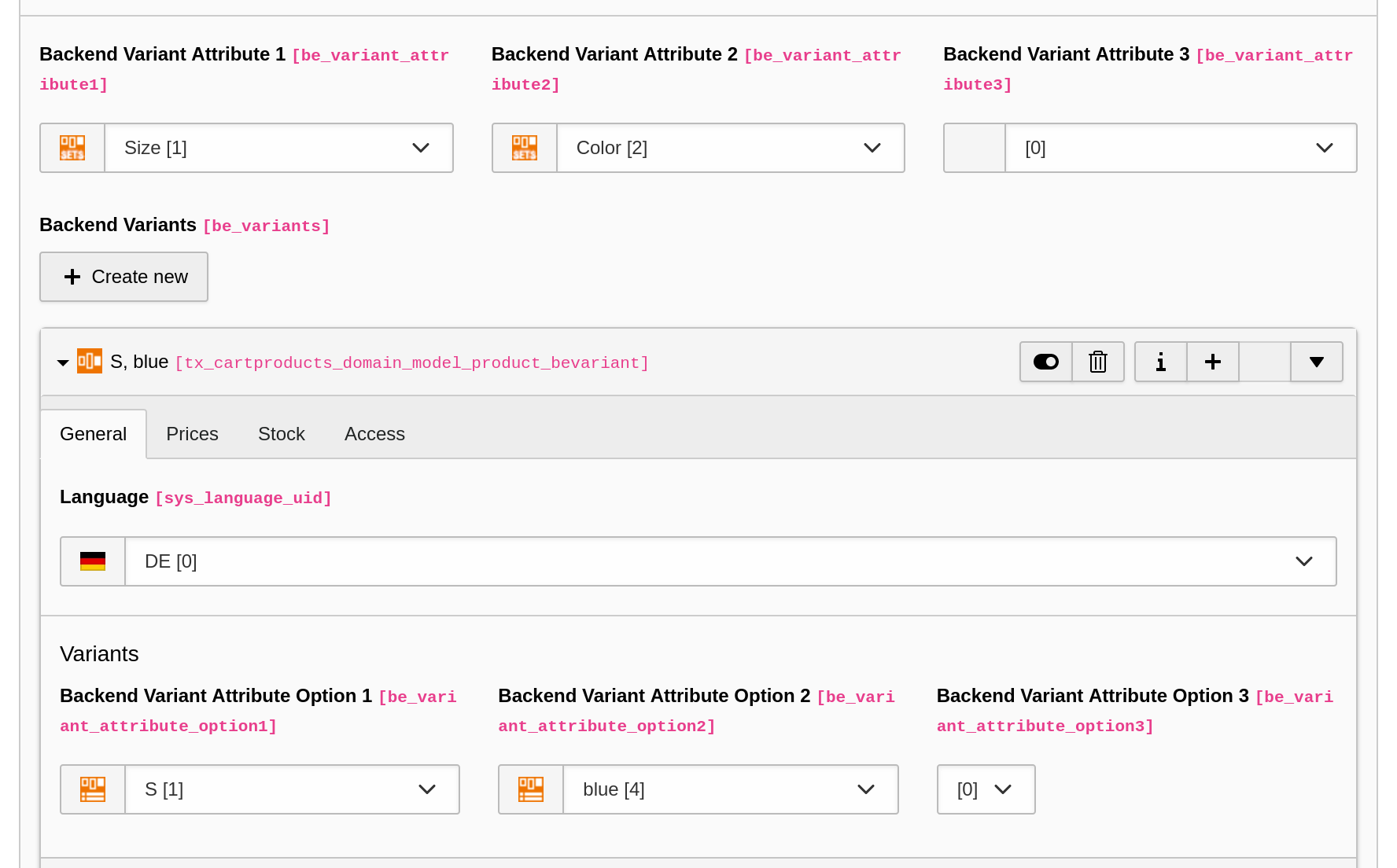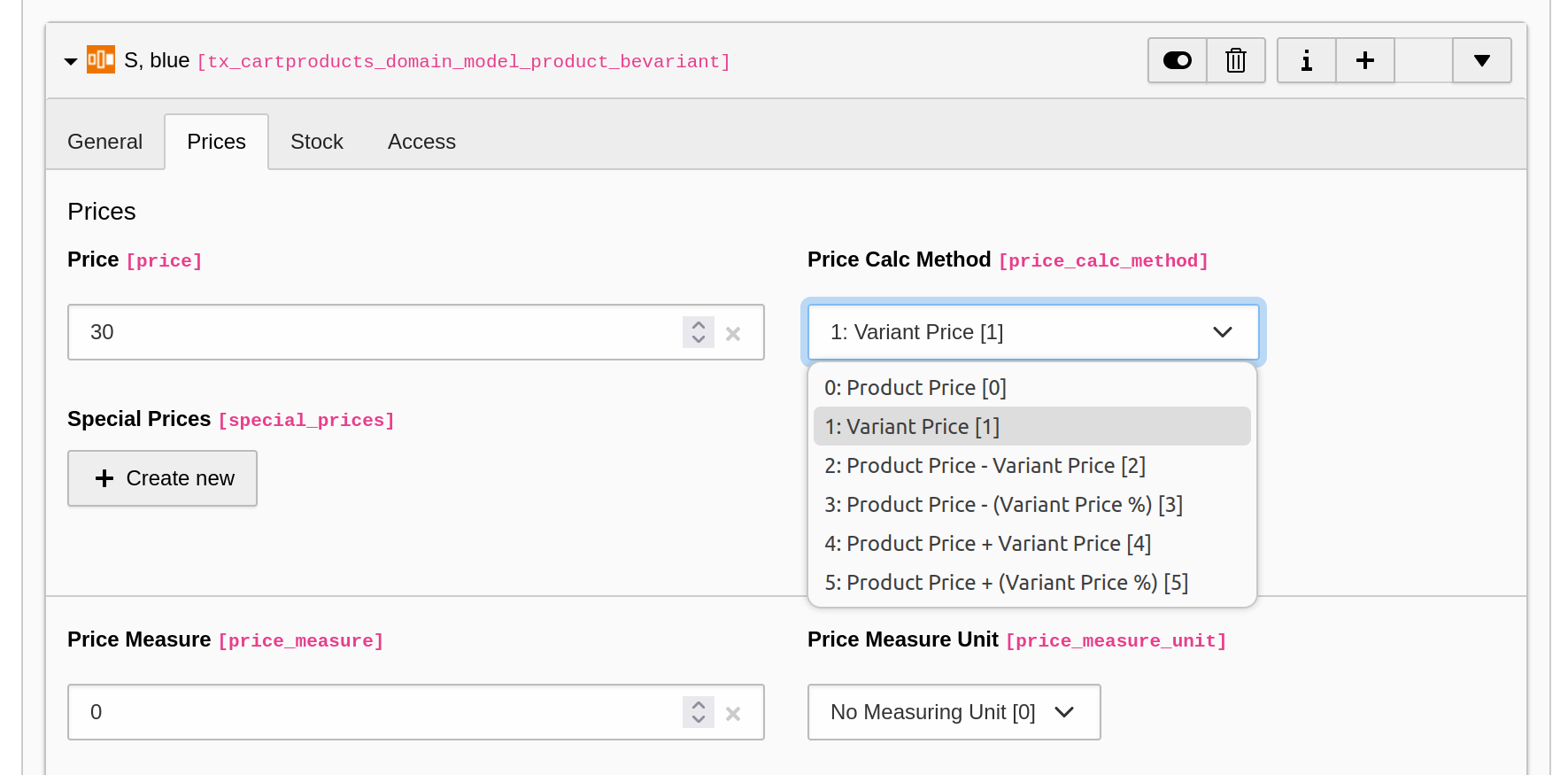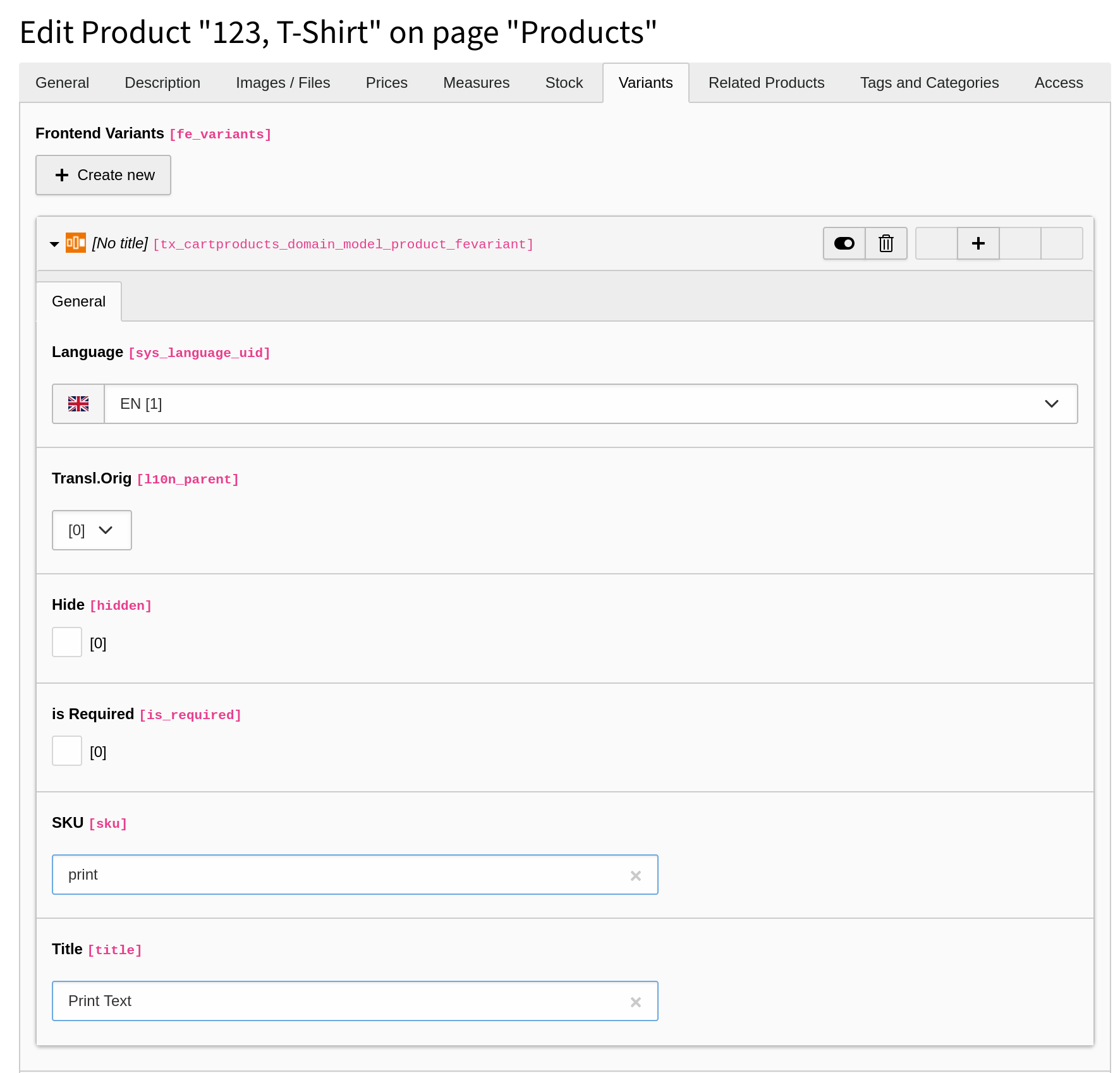Variants¶
Cart comes with two types of variants for products: Frontend Variants and Backend Variants.
Difference between Frontend Variants and Backend Variants¶
Backend Variants can influence the price of a product while Frontend Variants foremost are used to get additional data from the customer.
The following example uses a T-shirt asBE variant product to illustrates the difference of both variants.
Frontend Variant
The customer is able to enter a text which will be printed on the T-shirt. Therefore the product has an input field.
This does not influence the price of the product but just enables the customer to add additional information.
Backend Variant
The shop owner sells the T-Shirt in different sizes S, M, L.
The available options are stored as BE variants in the product with different prices.
The customer can choose one of the options from a select list.
The choice of the customer changes the price of the T-Shirt.
Create Backend Variants¶
Note
Not all fields that can be filled in the backend during the following steps are shown in the frontend with the default templates. To show them you need to add custom templates.
It requires multiple steps to create Backend Variants. Which can be quite overwhelming at the beginning offers maximum flexibility and is logical once you get used to it.
Create a Backend Variant Attribute
A Backend Variant Attribute determines the type of variant.
An example is Size for a T-shirt.
The record for a Backend Variant Attribute is created directly within a TYPO3 page.
Note
Backend Variants need to be placed on the same page as the product itself.
Create Backend Variant Attribute Options
A Backend Variant Attribute Options is one certain instance of a Backend Variant Attribute which will be an option for the customer.
An example is XXL as Size of a T-shirt.
Such an attribute is created within a Backend Variant Attribute.
Set Backend Variant Attributes within Product
The above defined Backend Variants Attribute is chosen within the product in the Tab "Variants".
It is possible to define up to 3 different Backend Variants Attributes within a product, e.g. size, color and cut. The available combinations are defined in the next step.
Create final Backend Variants within Product
Create a new Backend Variant.
A single Backend Variant select for every above defined a Backend Variant Attribute an Backend Variant Attribute Option (as defined in step 2).
Set further values for the variant
Set which price this variant shall have (as described below), additionally it is possible to set stock and price measures.
Price calculation for Backend Variants¶
The price calculation for a Backend Variant can be set with multiple options:
Selection |
Description |
|---|---|
1: Product Price |
Use price of product itself. |
2: Variant Price |
Use price of variant itself. |
3: Product Price - Variant Price |
Subtract variant price from product price. |
4: Product Price - (Variant Price %) |
Subtract variant as percentual amount of product price. |
5: Product Price + Variant Price |
Add variant price from product price. |
6: Product Price + (Variant Price %) |
Add variant as percentual amount of product price. |
Create Frontend Variants¶
A Frontend Variant is created directly within the product in the tab Variants.






